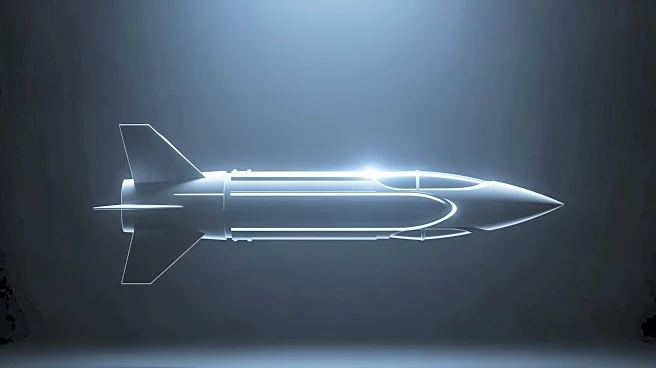What's Happening?
Russia has successfully tested a new nuclear-capable cruise missile, known as the Burevestnik, according to President Vladimir Putin. The missile reportedly remained airborne for 15 hours, covering 14,000 kilometers. This development is part of Russia's
ongoing efforts to enhance its military capabilities amid tensions with Western nations. The Burevestnik, also referred to as Skyfall by NATO, is claimed to have an unlimited range and the ability to evade existing missile defense systems.
Why It's Important?
The successful test of the Burevestnik missile underscores Russia's strategic focus on advancing its military technology, potentially altering the balance of power in global security dynamics. The missile's capabilities could challenge existing defense systems, prompting concerns among NATO members and other countries. This development may influence international arms control discussions and heighten geopolitical tensions, particularly in the context of ongoing conflicts and sanctions involving Russia.
What's Next?
Russia plans to further develop the infrastructure necessary to deploy the Burevestnik missile within its armed forces. The international community, particularly NATO and the United States, is likely to respond with increased scrutiny and potential diplomatic measures. Discussions on arms control and non-proliferation may gain urgency as countries assess the implications of Russia's advancements in missile technology.
Beyond the Headlines
The testing of the Burevestnik raises ethical and environmental concerns due to its nuclear-powered engine, which could pose risks during operation. Historical attempts to develop similar technology were abandoned due to safety hazards, highlighting the potential challenges Russia may face in deploying this missile. The broader implications for global security and environmental safety remain a topic of debate among experts.















